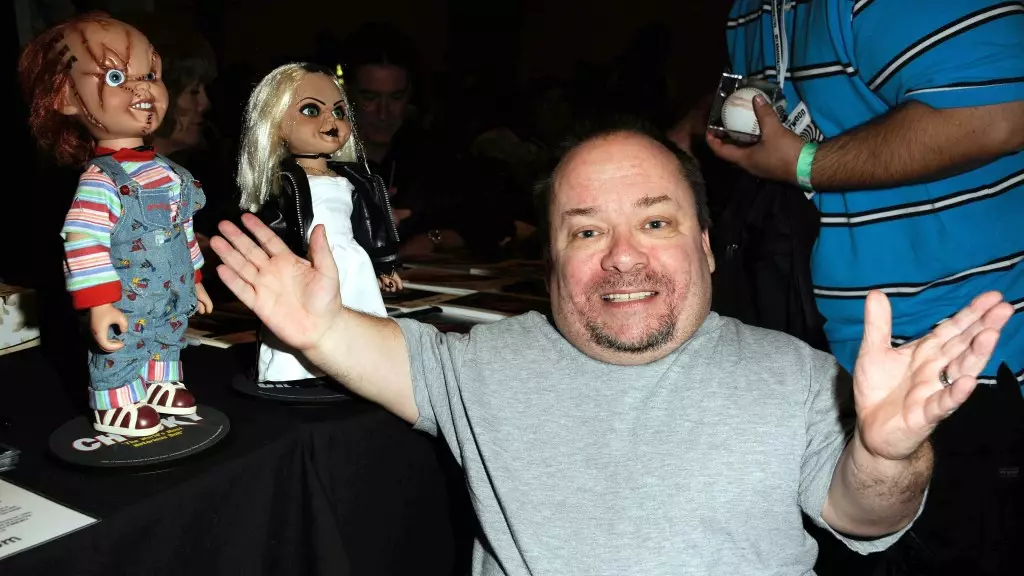The news of Ed Gale’s passing at a mere 61 years old elicited a wave of nostalgia among movie enthusiasts who fondly remember his quirky performances in cult classics like “Howard the Duck” and “Child’s Play.” But while we pay tribute to his impressive career as an actor and stunt performer, it’s nearly impossible to overlook the darker side of his legacy, which is marred by serious allegations related to child exploitation. Gale’s life is a perplexing dichotomy—a seemingly jovial entertainer beloved for his roles, now entwined in a narrative that challenges our perceptions of celebrity.
Gale’s niece Kayse Gale illuminated her fond memories of her uncle, recalling his whimsical dreams and the joy he spread through storytelling. Yet, amidst these endearing anecdotes, we must confront a haunting truth: his later years were shadowed by his alleged criminal actions. The dual nature of his existence serves as a cautionary tale about the complexities of human nature, and how personal demons can remain hidden even from the closest loved ones.
A Career Shaped by Iconic Roles
Ed Gale, born on August 23, 1963, in Plainwell, Michigan, became a fixture in the realm of fantasy and horror films. He often portrayed characters that oscillated between the fantastical and the grotesque, embodying an intriguing mix of humor and horror. His role as the titular character in “Howard the Duck” showcased his knack for bringing whimsy to the absurd, while his portrayal in “Child’s Play” placed him firmly within the annals of horror film history.
However, as we reminisce about his various film appearances—from comedic gems like “Spaceballs” to family favorites such as “The Polar Express”—we must reconcile these memories with the emerging narratives of his off-screen life. It is distressing to confront the notion that behind a smile on screen could lie a complex and troubling individual off it. This paradox forces us to reassess the nature of celebrity, revealing the fallibility of human beings we often try to idolize.
Cultural Reflections in the Shadow of Allegations
In this era, we are grappling more than ever with the consequences of celebrity culture and the darker undercurrents that often accompany fame. Ed Gale’s story invites us to confront uncomfortable truths about the entertainment industry—where the line between adoration and accountability can blur. The alarming allegations against him serve as a stark reminder that not all who entertain us can be seen as role models.
It’s essential to examine how society often holds celebrities on a pedestal, allowing them to evade accountability. While Gale was able to charm audiences in his roles, the difficulty lies in understanding how society must respond to the alarming truths that surface in the wake of tragedy. As consumers of media, we ought to reflect on the moral implications of our entertainment choices, and the complicity involved in elevating talented individuals without holding them accountable.
The Loss of an Unconventional Uncle
In Kayse Gale’s poignant tribute, we learn that beyond the screen, Ed was remembered as a loving uncle who shared the magic of Hollywood with the next generation. It’s in this juxtaposition of warmth and darkness that we find the essence of the human experience—a mixture of love and disappointment, joy and regret. He had a knack for storytelling and laughter, resonating deeply with his family. Yet, the joys shared by this uncle stand in stark contrast to the allegations that have emerged since his passing.
As his family mourns, they must also grapple with the tainted legacy he left behind. With every laugh he shared, was there an inkling of the darkness that ultimately overshadowed his joy? This duality reveals the challenge of remembering a beloved uncle while confronting the realities of his complicated life.
As Ed Gale takes his final bow and moves on from this world, we are left not only with a sense of loss for a unique comedic talent but also with urgent questions about how we engage with the flawed personalities in our cultural landscape. Do we continue to celebrate their work despite the troubling truths, or do we allow these truths to redefine their legacy? The struggle is real, and the answers are often as complex as the lives themselves.


Leave a Reply